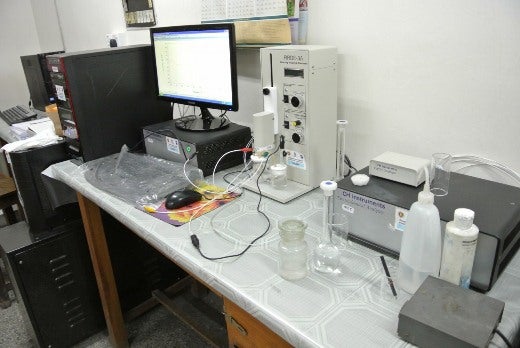
The air quality of Bangladesh’s capital - Dhaka - has dipped considerably in the last 10 years or so as the economy boomed, more factories were set up and the number of cars on the roads increased day by day. Air quality in Dhaka is quickly becoming one of the major health concerns for its residents; reliable and sophisticated data are thus urgently needed to help address this.
A proposal to establish a research center with modern and reliable laboratories for monitoring atmospheric pollutants in Dhaka, submitted by the Center of Advanced Research in Science (CARS) in University of Dhaka, received a research grant of about BDT 34.5 million (about US$ 442,000) from the Higher Education Quality Enhancement Project (HEQEP). The sub-project titled: “Establishing an Air Quality Monitoring Center” is headed by Dr. Shahid Akhtar Hossain, a professor of the Department of Soil, Water and Environment.
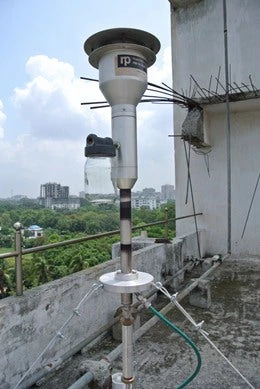
samples
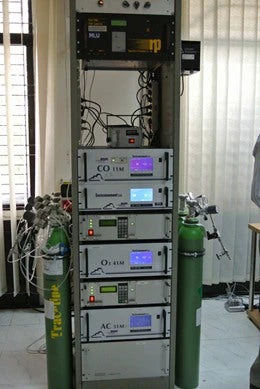
measurement
The Air Quality Research and Monitoring Center was established in 2013 on the top floor of the CARS and is now taking in air samples from air stations set up on the building’s roof top. The analyzer scans, captures and analyzes pollutants in the air such as particle matters (PM10/PM2.5), NOx, CO, CO2, O3, SO2, and provides reliable data on the level of pollutants. Installation of modern software, allows the station to be monitored from any place of the world, where the internet is available. Using the data, computer models are also being developed to analyze the sources of pollutants and simulate future scenarios of air pollution in Dhaka.
The CARS is not the only institution with such air quality monitoring centers in Bangladesh. The Ministry of Environment and Forests has deployed a network of air quality monitoring centers in different cities in the country under the Clean Air and Sustainability Environment (CASE) project, also funded by the World Bank. The CARS sub-project is hoping to collaborate with the Ministry and work together to improve the quality of air quality monitoring system in Bangladesh.
“The strength of our monitoring system is accuracy of measurement,” says Dr. Md. Mominul Islam, Associate Sub-Project Manager and Assistant Professor, Department of Chemistry, Dhaka University. “Our on-line air quality monitoring instruments are equipped with sophisticated calibration system with certified calibration gases. Calibrating the monitoring instruments with proper calibration gasses is critical for accurate measurements because measurement errors accumulate gradually in the system and need to be regularly adjusted. The calibration gasses provide accurate benchmarks for such adjustments.”
The sub-project also has a close research partnership with University of Wuppertal, Germany. A team led by Dr. Ralf Kurtenbach has not only donated air quality analyzers to the sub-project, but is also providing seminars and on-site training to faculty members, researchers and PhD students working for the sub-project to impart theoretical and practical knowledge and skills indispensable for reliable operation of the air quality monitoring system. Dr. Kurtenbach’s team will soon be providing training and advices virtually from Germany. Atmospheric chemistry is still a relatively new subject in Bangladesh. This successful international partnership is sure to play a pivotal role in nurturing future generation of air quality experts in Bangladesh.
The sub-project has made another large investment to establish a modern electrochemical research laboratory to invent an innovative portable gas sensing device. “Our vision is to develop a portable air quality sensor device just like a portable thermometer which people can take to factories, streets and even to the kitchen to check air pollution easily. It will surely take years to develop such devices, but this new state-of-the-art lab equipment is helping us achieve this goal. Even my professor in Japan was surprised to see the equipment and he was very proud of me,” said Dr. Islam with a big smile on his face.HEQEP is helping many academics in Bangladesh explore new areas of research, and the investments made under HEQEP continue to inspire innovative researches and first-class university education.
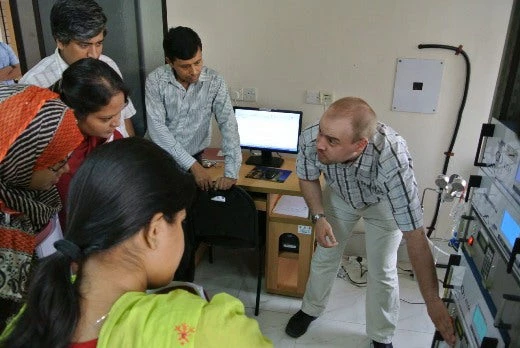

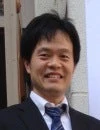
Join the Conversation